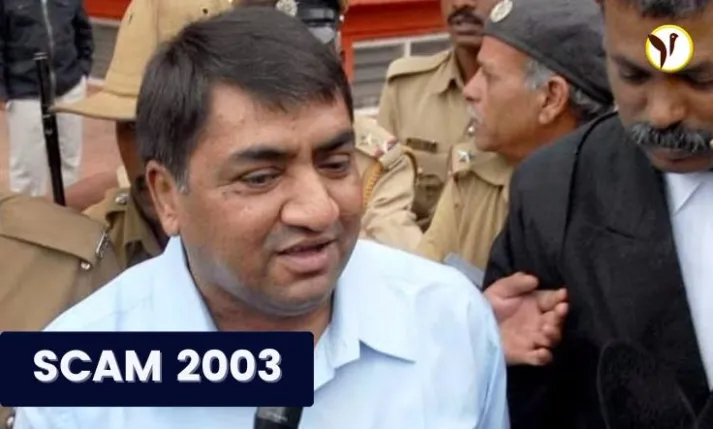The Scam of 2003, done by Abdul Karim Telgi, is one of the largest financial frauds in Indian history. Telgi, a small-time thief from Karnataka, orchestrated one of India's greatest counterfeit stamp paper frauds.
The fraud, which involved the manufacturing and sale of phony stamp papers to banks, insurance firms, and other government entities, was estimated to be worth roughly Rs. 20,000 crore. The scam had far-reaching effects, weakening the government's and the financial system's trust. The government was required to compensate the scam's victims, which included banks and other financial organizations. The scam also revealed flaws in the stamp paper system, prompting a system overhaul and stronger rules.
Many police officers, politicians, and bureaucrats were revealed to have been bribed by Telgi throughout the inquiry. Telgi's assets were frozen after the CBI discovered evidence of money laundering and tax fraud. During the scam, he had built up wealth, that included homes, expensive automobiles, and other valuables.
The fraud was exposed in 2003 when Bombay police arrested Telgi on a tip from an informant. The inquiry found that Telgi and his friends had established a cultural network to make and distribute counterfeit stamp sheets throughout the country. Because the fraud was distributed across numerous states, it was tough to track it down and investigate. To disentangle the complicated web of deception, the authorities had to enlist the assistance of the Central Bureau of Investigation (CBI).
The trial of Telgi and his associates lasted for several years, with new revelations and evidence coming to light. Telgi was convicted in multiple cases and sentenced to multiple terms of imprisonment. He died in 2017 while serving his sentence in a Bengaluru jail.
The 2003 Scam in India exposed corruption and cooperation, causing confidence to be lost and stressing the need for tougher laws and enforcement. Learning scam lessons and avoiding events are critical; the government must enhance the regulatory framework, close loopholes, and equip enforcement authorities for investigation and punishment.
The 2003 Scam also emphasizes the necessity for system openness and accountability. The authorities must guarantee that the public has access to information and that a system exists to hold them responsible for their actions.
It was a wake-up call for India's financial system, which made it essential to learn from it and take measures to prevent such incidents from happening again. The government, financial institutions, and the public must work together to create a robust and transparent financial system that inspires trust and confidence.
In conclusion, the Scam of 2003 is a reminder of the need for stronger regulations, transparency, and accountability in India's financial system. It is a dark chapter in India's history, but it is also an opportunity to learn from the past and create a better future. It is time to take action and ensure that such scams are prevented and that the financial system serves the people of India.
Also read, Get to know about the First woman to head the Railway Board, Jaya Verma Sinha
Written by: Gauri Singhal







